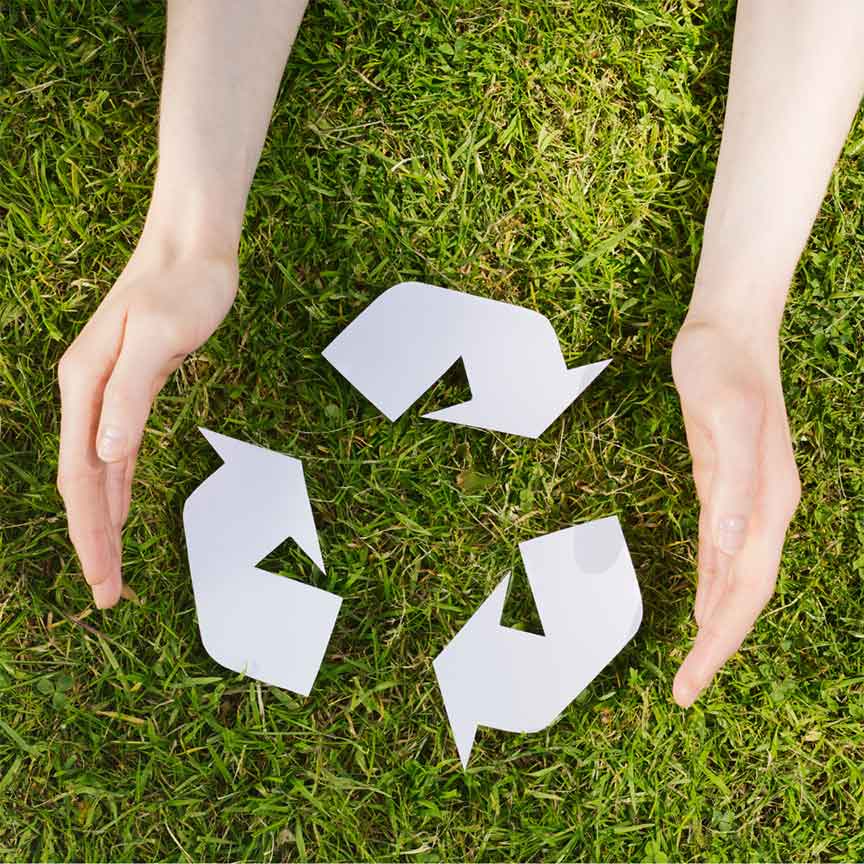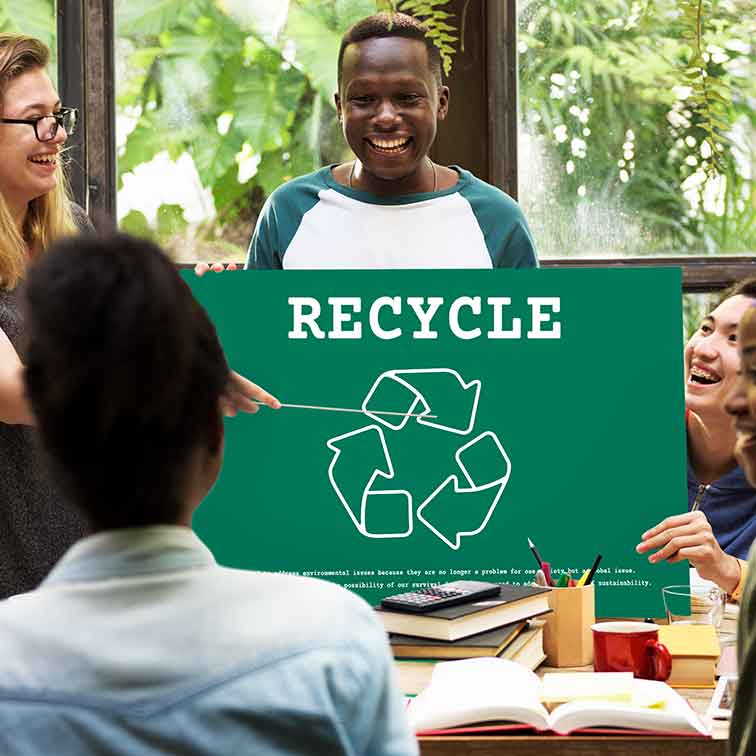Sustainability Spotlight
Recycling Basics
Paper, plastic, and metal are the basics of recyclable materials… but what do you do about those items in your home that you’re not quite sure can be tossed into the recycling bin? Learning what to do with unwanted household items can be confusing, but Maola is here to help.


What to do with:
- Cell Phones
-
- Unfortunately, used electronics and old cell phones can’t just be tossed out with your regular recycling, but there are specific recycling facilities that do accept electronics. Some electronic stores also accept old electronics, and sometimes you can even trade in your old cell phone for cash value for an upgrade.
- CDs, DVDs, VHS Tapes
- In the age of digital streaming, CDs, DVDs, and VHS tapes have become almost obsolete, but they don’t have to fill up landfills. If they are in good condition, drop them off at a donation center or second-hand store. Do a little research to find an electronic trash disposal company in your area for the scratched or damaged ones.
- Empty Aerosol Cans
- When your aerosol can is empty, it can typically be tossed in with your regular recycling, but when it has even a tiny amount of liquid left inside, it cannot be recycled. Make sure you empty your aerosols before recycling – the easiest way to do this is by spraying until nothing comes out.
- Books (including paperbacks, hardbacks, and telephone books)
- Did you know that it isn’t very easy to recycle hardcover books? Generally, hardcovers are made from cloth, leather, or plastic, which can make it trickier to recycle. Since hardcovers are designed to last a long time, consider donating them to a local library or charity organization. You can do the same with your paperback books as well! If you are unable to donate, paperback books can still be recycled. If the book has been wet or turned brown, unfortunately, it cannot be recycled anymore and must be thrown in the trash. Otherwise, you are clear to toss it into your regular recycling bin.
- Athletic Shoes
- Much like the other materials we talked about, it’s best to donate athletic shoes to your local second-hand store or charity organization wherever possible. For shoes that are too beat up to have a second life, check your local organizations for a program that recycles old sneakers.
Donation is best, but for those items that cannot be given a second life, it’s worth the extra step to learn the proper way to reuse or recycle them to avoid landfills. Always check your local municipalities for more information on proper recycling.


Excellent article. I certainly appreciate this website. Stick with it!
Appreciation to my father who informed me about this website, this webpage is really remarkable.